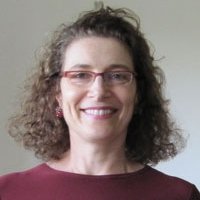Reporting From Uganda: U.S. Media Cover Health, Environment, and Security
U.S. journalists "are by and large dying for the opportunity to go overseas and learn about a whole range of issues, from refugees to human rights," but often lack the support of their editors—the "gatekeepers"—to do so, said Louise Lief, deputy director of the International Reporting Project (IRP), at a February 26, 2009, event, "Reporting From Uganda: U.S. Media Cover Health, Environment, and Security." Leif was joined by Paul Hendrie, department editor at Congressional Quarterly (CQ); David Rocks, senior editor at BusinessWeek; and Ben de La Cruz, a staff video journalist at The Washington Post, to discuss the recent IRP Gatekeeper trip to Uganda.
President Museveni's Surprising Views
"One of the advantages of these trips is when you go with a critical mass of 12 very senior editors…you can often get in to see the head of state," said Leif, describing the group's sit-down interview with President Yoweri Museveni of Uganda. One "big surprise for me was President Museveni's views on population," which he did not consider a challenge, said Lief, despite the country's high total fertility rate of 6.7 children per woman.
She was heartened that the country's poor infrastructure, including bad roads and unreliable electricity, did not deter Ugandan children from obtaining an education. "All along the road in brightly colored clothing there were thousands and thousands of children," she said. "Some of them were walking for kilometers, but they were going to school."
Organic Farmers Fight DDT in Uganda"These things that we deal with in Washington every day have a real impact in the real world," said CQ's Paul Hendrie. He wrote a story on the Ugandan debate over using the pesticide DDT to combat the country's significant malaria problem. "As one expert put it to me, ‘Farmers love DDT because it kills everything,' and that's why it was so popular"—and why it was banned in the United States.
"Uganda has developed an industry, a fledgling industry, of certified organic farmers. They're the leading organic exporter in Africa and thirteenth in the world," explained Hendrie. Farmers are concerned "that if traces of DDT are found in these products, they'll be shut out of markets, especially in Europe, their biggest market."
"It's kind of ironic then that in Uganda now, today, the fight against the use of DDT is not being so much led by environmentalists as by farmers, and specifically organic farmers," Hendrie noted.
Investigating Uganda's Economy"In a developing country, what is it that moves people, that makes the economy grow?" BusinessWeek's David Rocks wondered before visiting Uganda.
"One of the companies that struck me was Kiwi Shoe Polish," he said. Many people keep their shoes "for 10 or 15 years, so you have to keep them shined and polished and in good shape in order to use them." But Chinese companies have begun counterfeiting the polish, causing Kiwi's sales to plummet 50 percent in the last year. "It's the poorest of the poor who are getting ripped off," he said.
"I think that there is a lot of room for interesting economic and business stories to be done from Africa," said Rocks, who is a senior editor at the magazine. "I hope to get my people to do more and more of that."
Seeds of Peace in the IDP Camps"The focus of my reporting was basically on security issues in the north, in the Gulu region, where there's been a 20-year civil war," said Ben de la Cruz, who filmed several videos for The Washington Post documenting the dangers of life in Uganda's internally displaced persons (IDP) camps. In the online multimedia presentation "Seeds of Peace," IDPs tell their wrenching stories, and peace mediator (and former Wilson Center Scholar) Betty Bigombe provides historical and political context on Uganda's civil war.
"Despite the two years of relative peace, lots of people are still living in the camps and are afraid to leave," de la Cruz explained. "There's a huge fear factor because of Joseph Kony's rebels—even though they had a ceasefire, they're always afraid he's going to come back."
Drafted by Will Rogers and edited by Rachel Weisshaar and Meaghan Parker.
Speakers

Independent Journalist
Hosted By

Environmental Change and Security Program
The Environmental Change and Security Program (ECSP) explores the connections between environmental change, health, and population dynamics and their links to conflict, human insecurity, and foreign policy. Read more


Africa Program
The Africa Program works to address the most critical issues facing Africa and US-Africa relations, build mutually beneficial US-Africa relations, and enhance knowledge and understanding about Africa in the United States. The Program achieves its mission through in-depth research and analyses, public discussion, working groups, and briefings that bring together policymakers, practitioners, and subject matter experts to analyze and offer practical options for tackling key challenges in Africa and in US-Africa relations. Read more
